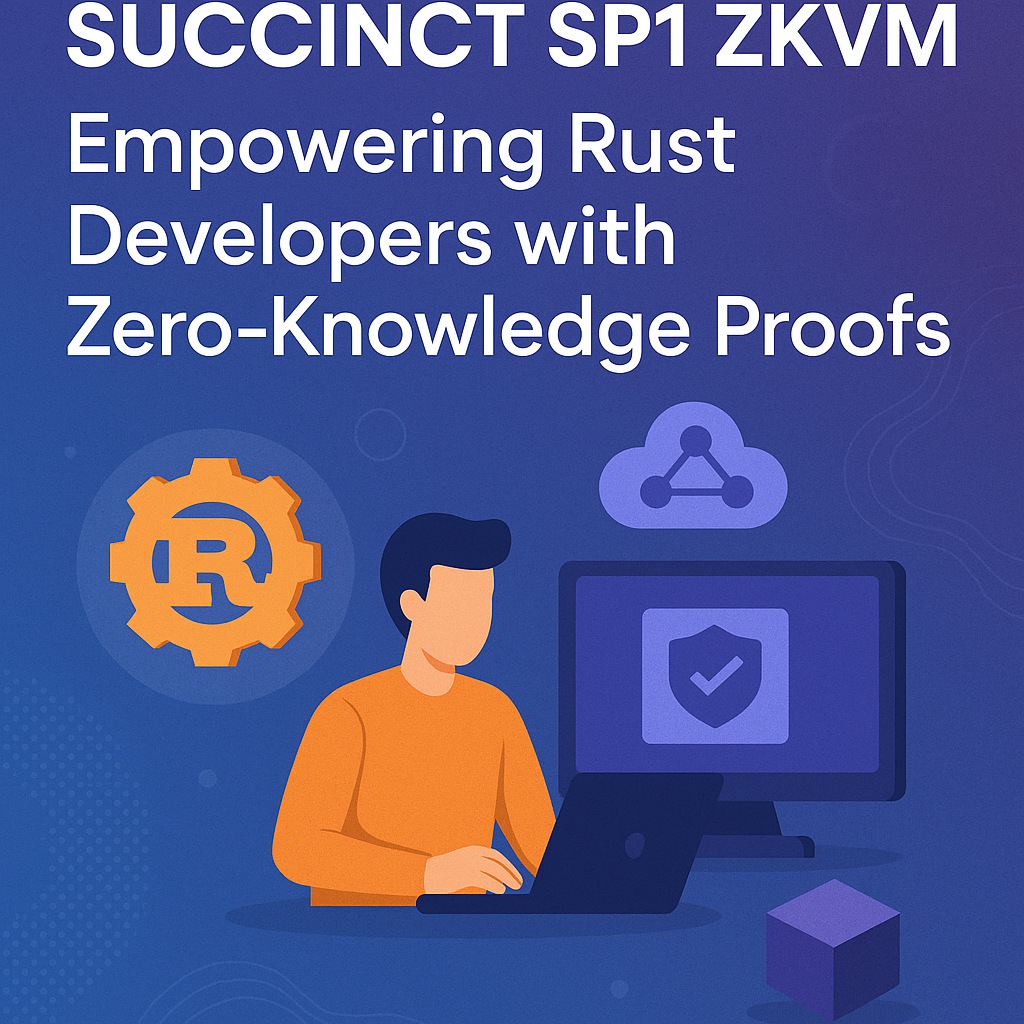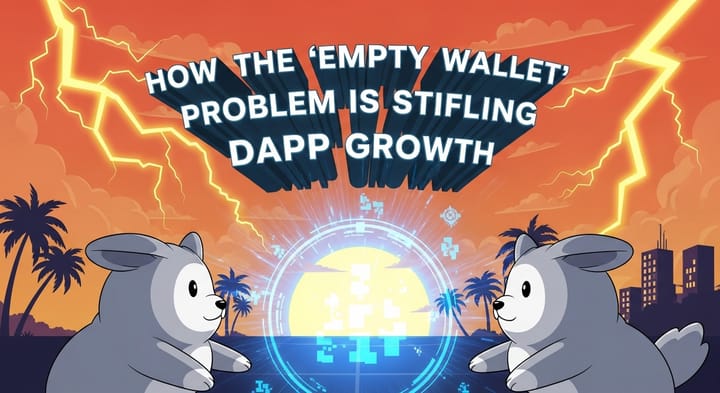Succinct SP1 zkVM: Empowering Rust Developers with Zero-Knowledge Proofs

Introduction
Zero-Knowledge Proofs (ZKPs) are no longer just cryptographic novelties—they're foundational to the next phase of blockchain scalability and privacy. From enabling private transactions to reducing data bloat on-chain, ZKPs are unlocking possibilities we couldn't dream of just a few years ago. But building with ZKPs has traditionally been difficult. Developers often face steep learning curves, complicated tools, and compatibility headaches. That’s where the Succinct SP1 zkVM changes the game. It’s a new zero-knowledge virtual machine built to support general-purpose Rust code—making ZK development accessible to one of the fastest-growing dev communities. In this article, we’ll explore how SP1 zkVM works, what makes it a game-changer for Rust developers, and how Mitosis can tap into this innovation to make its modular ecosystem more secure, private, and scalable.
ZKPs Meet Rust: Why SP1 zkVM Matters
Zero-Knowledge Proofs have long been associated with privacy-focused blockchains like Zcash or advanced L2 rollups like zkSync and StarkNet. But implementing ZKPs often means rewriting code in highly specialized languages like Cairo, Circom, or Noir—languages that come with their own toolchains and limitations. Enter SP1 zkVM by Succinct: a zero-knowledge virtual machine that allows developers to write and prove general-purpose programs in vanilla Rust. No need for domain-specific languages. No need to rewrite your dApp logic from scratch. Here’s what makes SP1 special: ➠ Rust Native: Developers write Rust as usual. The VM handles ZK proof generation without requiring a new language. ➠ Prove Anything: Whether it's a game, a DeFi strategy, or an oracle update—if it runs in Rust, it can be proven in SP1. ➠ Fast + Modular: SP1 is designed for composability, speed, and interoperability with existing blockchain environments.
Example: A dev building a prediction market dApp can now write their matching engine and payout logic in Rust, and generate ZKPs proving that payouts were calculated fairly—without exposing sensitive betting data.
This unlocks new possibilities: confidential transactions, trustless oracles, verified compute—all with minimal overhead. For Rust developers who’ve been waiting for an accessible entry point into ZK, this is it.
Use Cases: ZK Made Practical for Modular Ecosystems
SP1 zkVM is especially powerful when applied to modular blockchain architectures like Mitosis. In modular systems, chains are unbundled—data availability, execution, consensus, and settlement live in separate layers. This allows for extreme customization and scalability. But modularity introduces complexity. How do users trust that off-chain execution was done correctly? How do rollups verify oracle inputs or external state changes? Zero-Knowledge Proofs solve this, and SP1 zkVM makes them usable in the real world. Let’s break down a few practical applications:
1. ZK Rollup Proofs of Custom Logic Rollups often require a prover to generate validity proofs for their execution. But not all rollups want to use the same tooling. With SP1, teams can implement rollup logic in Rust and generate ZK proofs without relying on limited DSLs. How Mitosis benefits: Developers can build and launch custom rollups within Mitosis and use SP1 to generate proofs for their Rust-based execution logic—scaling securely and privately. 2. Trustless Oracles + Off-Chain Computation Let’s say you want to fetch the price of an asset or the result of a long computation, and bring it on-chain. SP1 allows the off-chain service to prove, in ZK, that the computation was performed correctly—without revealing the data. Example: An oracle using SP1 can prove that it fetched the average of the last 100 prices from multiple exchanges and applied a filter to remove outliers—without leaking raw prices. How Mitosis benefits: Rollups on Mitosis could use SP1-powered oracles for weather data, game scores, or even AI model outputs—knowing the inputs were verified, not just assumed. 3. Private, On-Chain Games and Identity Systems Want to make a chess game where moves are private until revealed? Or a voting app where only the results, not individual votes, are public? SP1 enables this. Example: A DAO could implement confidential voting via SP1: voters submit encrypted ballots, and SP1 proves the tally was computed correctly. How Mitosis benefits: Builders on Mitosis could offer privacy-preserving applications—without setting up entire zk-rollups or integrating complicated tooling.
SP1 and the Mitosis Stack: A Perfect Match
Mitosis is building a modular rollup platform where developers can launch their own execution environments, plug into different DA layers, and customize consensus and tooling. It’s flexible, but that flexibility needs trust. ZKPs provide that trust layer—and SP1 is the missing puzzle piece that lets developers prove, verify, and compose in Rust. Here’s how Mitosis can integrate SP1: ➠ SDK Integration Mitosis can incorporate SP1 zkVM as a plugin/module in its SDK, allowing devs to spin up rollups with built-in ZK proof generation. ➠ ZK Dev Quests & Grants Launch community quests that challenge contributors to build ZK apps with SP1. Reward integrations like oracles, games, and rollups that use SP1 to enhance privacy or scalability. ➠ ZK Dev Tooling on Rollup-as-a-Service Offer SP1 as an optional module when users deploy rollups on Mitosis. Add support for uploading Rust contracts and auto-generating proofs for execution correctness. ➠ Privacy-First DApps Encourage developers to build use cases like anonymous voting, confidential swaps, and identity-verifiable access systems powered by SP1. Bottom Line: SP1 helps Mitosis deliver on the “trust-minimized modularity” vision—giving rollup developers a way to prove integrity without sacrificing dev experience.
Conclusion
The Succinct SP1 zkVM marks a turning point in ZK development: finally, general-purpose Rust code can be turned into verifiable proofs—without the friction of learning new languages or protocols. In a modular future, where apps run across chains, oracles, and layers, trust is not optional. It must be built in—and ZKPs are the foundation. SP1 brings that foundation into the hands of real-world developers. For Mitosis, this is a major opportunity. By integrating SP1 and encouraging builders to explore ZK-powered applications, Mitosis can position itself as the go-to platform for trustless, modular dApps—pushing the boundaries of what’s possible in Web3.



Comments ()